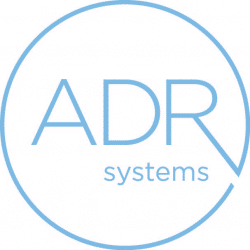While substantially all disputes settle after a first mediation session at ADR Systems, a handful do not. This is often because of the parties’ overestimations and underestimations of the case, the complexity of the issues and the need for more time. Where multiple sessions are necessary, our senior mediators and arbitrators know how to help parties navigate these challenges to settlement and keep the case moving toward an ultimate agreement. Here’s how they do it.
Overestimations and Underestimations
Parties may not settle during a first mediation session because of overestimations and underestimations of their case: overestimations of their case’s value and strengths and underestimations of the other side’s arguments, the risks in their positions and the impact that their emotions have on the process.
According to Hon. Dennis J. Burke, (Ret.), senior mediator and arbitrator at ADR Systems, parties overestimate and underestimate for two typical reasons: “First, they misunderstand their role in the mediation, my role, and the mechanics of mediation itself, so they expect the other side to bow to them and are not prepared for good-faith opposition to their positions,” he said. “Second, parties fundamentally lack requisite information about the other side’s positions. They cannot help but overestimate, underestimate and stay stuck.”
Overestimations and underestimations are symptoms of information asymmetry, when one or both sides lack — or suspect that they lack — vital information about the deal and opposing positions.[1] As noted elsewhere on our website when discussing the value of pre-mediation, parties may balk at and rebuff an offer out of hand because they lack information that contextualizes the rationale behind it. When parties lack key information, suspicions may then rise. Distrust may germinate. Tensions may compound. Gamesmanship may be presumed. And settlement may be delayed — all because of a lack of information, a lack of understanding.
When a case seems unlikely to settle during a first session because of overestimations, underestimations, and information asymmetry, Judge Burke will often ostensibly convert that session into a de facto discovery conference. He dedicates the remaining time with the parties that day to helping them determine what information they need or should provide so that both sides understand their respective positions. What medical records and bills may be informative? Which key excerpts from your expert witness’s deposition are you relying on? Which key facts and evidence are you using in your theory of liability and calculation of damages? What case law? From there, the parties can assess what they have learned, revise their positions and return to the next session with a truer, more rational understanding of the case and negotiation as a whole. In Judge Burke’s experience, this usually results in a more efficient and productive second session, which almost always ends with a settlement.
The Complexity of the Issues
Parties may not settle during a first mediation session because their case’s issues are too complex to disentangle in one day. When our mediators read all the parties’ submissions, they work hard to understand the scale of complexity within questions of liability, contribution, coverage and the value of damages. Parties must find agreement on all these issues, and their complexity is usually proportional to the number of claims and parties in the dispute.
For example, if counterclaims, crossclaims, or third-party claims have been filed, additional layers of complexity have been added onto the negotiation’s pile of open questions. Relatedly, multiple insurers may be involved in the dispute and may possess different policy limits and opinions on the scope and order of coverage and their respective share of liability. To settle the case, the parties and our neutrals must reach a consensus on all these issues.
When complex cases with multiple parties and insurers are unlikely to settle during a first session, Hon. Janet Adams Brosnahan, (Ret.), senior mediator and arbitrator at ADR Systems, helps the parties reach an agreement on these issues preliminarily. After these questions are tackled, the parties can begin to negotiate over the value of the case.
“The successful resolution of issues involving coverage and the proportional allocation of liability and/or damages is essential when you have multiple insurers or limited insurance proceeds to compensate multiple plaintiffs,” said Judge Brosnahan. “It’s a challenging, often time-consuming process to aid the parties’ negotiations on issues that are prerequisites to a final agreement on the value of the case. For a global settlement, typically, defendants must reach an accord before they can negotiate with the plaintiffs. For a global settlement of all claims in a multi-party case, time and patience is needed.”
The Need for More Time
Parties may not settle during a first mediation session because they need more time to arrive at a settlement. A plaintiff may need an evening or a weekend to mull an offer over with family, and a defendant may need to acquire slightly greater authority to cross the last “t” and dot the last “i” in the settlement.
Just as often, parties may need more time to acquire more information about the case that will shape or reshape their positions. Judge Brosnahan recently settled a dispute several months after its first session because the initial mediation revealed that the parties could not settle without knowing how the cost of the plaintiff’s claim for a future surgery would affect total damages.
“When it becomes clear that a case isn’t going to settle after the first session, I always make sure that I know what my next steps are and what the parties’ next steps are,” said Judge Brosnahan. “If plaintiff’s counsel is waiting on additional medical bills, when do they expect to have those? I will pencil in a call for that time to discuss that information. When are business representatives or adjusters meeting with those who can give them greater authority? I will be sure to have their contact information to speak with them around that time. Who in the plaintiff’s family may have a role in helping the plaintiff decide whether they should settle? I will happily make myself available to conference with them all and discuss the mediation process.”
Even more impactful to the next round of negotiations may be rulings on motions for summary judgment and motions in limine that had been pending during the first session, creating unknowns that the parties could not move past. According to Judge Burke, “When the court rules on those motions, parties’ leverage and bargaining power can change. I always mark down the expected dates of those rulings and contact the parties when they are handed down. When I speak with the parties, I always ask how the results have changed their perspective on where negotiations left off.”
These status-update conversations often help our neutrals and the parties determine whether and when the parties will be ready to return for a second session, which is typically far more focused than the first session. A first session is often marked by pseudo-litigating; the parties are trying to assert their positions and make sure the other side understands them. But after all that work is done, and after time away, the main question is typically about reasonable compensation. The case usually settles quite quickly.
Final Thoughts
Counsel and their client may be tempted to see flashing red lights before them if their first mediation session does not proceed as they expected. But not settling during a first session is not a bad thing. It may, in fact, be good for the case. With our neutrals’ guidance and follow-up efforts, a little more time in the long life of a civil dispute can make all the difference to a meaningful settlement. The time between sessions is simply another step in the process.
…………
Hon. Janet Adams Brosnahan, (Ret.) served over 21 years in the Circuit Court of Cook County. She has expertise in settling a variety of disputes, particularly those relating to medical negligence, toxic tort and product liability issues. Judge Brosnahan also has extensive experience in labor, employment and contract matters. Her warmth and in-depth knowledge make her a well-respected and sought-after neutral.
Request Judge Brosnahan’s Availability
Hon. Dennis J. Burke, (Ret.) has expertise in both commercial and personal injury matters. Following a 23-year legal career, he spent 15 years in the Cook County Circuit Court Law Division. An early advocate of alternative dispute resolution, Judge Burke created a program to mediate complicated discovery disputes – a program that is still used in the Circuit Court today. Judge Burke is well known for his keen ability to build trusting relationships with all parties.
Request Judge Burke’s Availability
ADR Systems, It’s Settled.®
…………
[1] See Subramanian, Guhan, and Michael Klausner. Deals: The Economic Structure of Business Transactions. Harvard University Press, 2024, p. 18.





